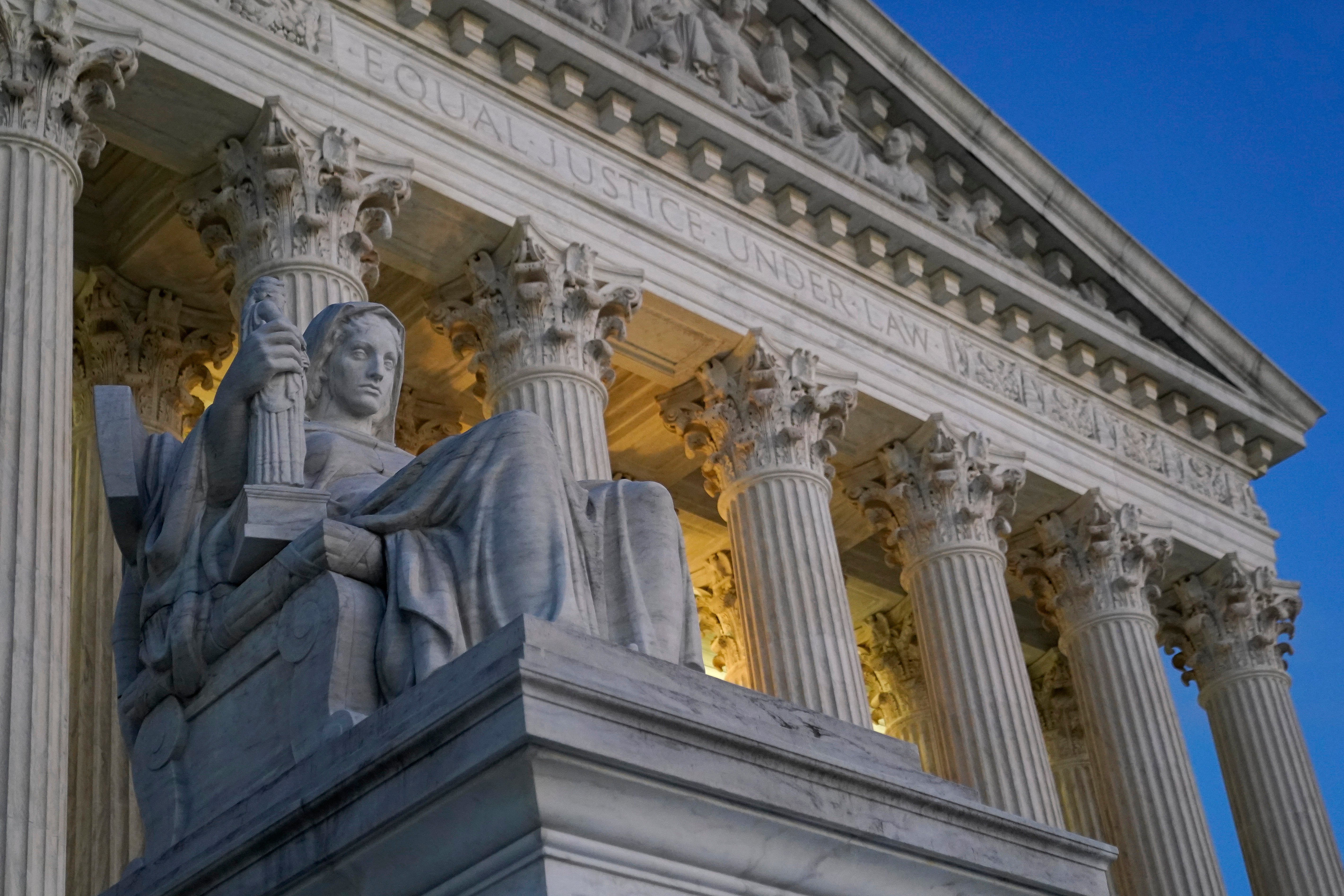One justice explained absence from case. Another didn't. Ethics questions vexing Supreme Court
One Supreme Court justice explained her absence from a case

Your support helps us to tell the story
From reproductive rights to climate change to Big Tech, The Independent is on the ground when the story is developing. Whether it's investigating the financials of Elon Musk's pro-Trump PAC or producing our latest documentary, 'The A Word', which shines a light on the American women fighting for reproductive rights, we know how important it is to parse out the facts from the messaging.
At such a critical moment in US history, we need reporters on the ground. Your donation allows us to keep sending journalists to speak to both sides of the story.
The Independent is trusted by Americans across the entire political spectrum. And unlike many other quality news outlets, we choose not to lock Americans out of our reporting and analysis with paywalls. We believe quality journalism should be available to everyone, paid for by those who can afford it.
Your support makes all the difference.One Supreme Court justice explained her absence from a case. One justice didn't.
The difference shows how difficult forging consensus over even small steps on ethics can be at the Supreme Court, which is facing new calls to adopt an ethics code following revelations about undisclosed gifts from a Republican megadonor to Justice Clarence Thomas.
Last week, Chief Justice John Roberts acknowledged the court needs to do more to reassure a skeptical public that the justices take their ethical obligations seriously.
Though the justices have been resistant to a binding code of ethical standards, all nine signed a “statement on ethics principles and practices” issued in late April that promised at least some small additional disclosure when one or more among them opts not to take part in a case.
A justice “may provide a summary explanation of a recusal decision,” the statement reads, a change from the standard practice of saying nothing at all.
A week ago, Justice Elena Kagan became the first member of the court to explain herself, indicating that her previous employment in President Barack Obama's administration kept her out of an appeal, rejected by the court, from a death row inmate in Florida.
But on Tuesday, when the court turned away an appeal from energy companies, Justice Samuel Alito said nothing about why he was not involved.
Alito did not immediately respond to a request from The Associated Press for comment, sent through the court's public information office.
The probable reason for Alito's decision is not hard to find in his latest financial disclosure report: He owns between $15,000 and $50,000 in stock in Phillips 66, one of the companies that appealed.
Criticism of the court stems principally from a series of reports by the nonprofit investigative journalism organization ProPublica about undisclosed gifts including payment of a relative's school tuition and luxury trips provided to Thomas by Harlan Crow, a Dallas billionaire.
___
Follow the AP's coverage of the U.S. Supreme Court at https://apnews.com/hub/us-supreme-court.